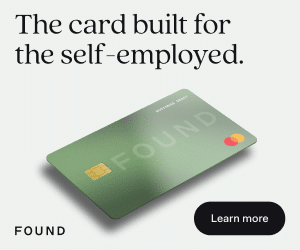As a freelancer, the importance of your online presence can’t be overstated.
Your online touchpoints are the first contact your potential clients and collaborators are going to have with you and will be a major deciding factor in whether or not you’re able to secure the next contract to keep your business surviving and growing.
Your website will act as your main digital storefront and can be a crucial tool in landing new freelance clients to keep your business on an upward trajectory.

Get Weekly Freelance Gigs via Email
Enter your freelancing address and we'll send you a FREE curated list of freelance jobs in your top category every week.
In this post, we’ll look at some of the most crucial steps you can take to optimize your freelancing website to get more clients and repeat business.
Make Sure Your Site is Fast, Reliable, and Functional
The actual content of your site is certainly important, but before we get into that it’s important to think about some of the technical aspects of your freelancer site.
When I first started freelancing, I thought I’d ticked all the right boxes for SEO by including relevant high-demand keywords on my content and a logical linking structure.
I was surprised when I wasn’t getting the ranking increases I was hoping for, until I realized there were a lot of technical issues with my site I’d been neglecting.
Making sure your site is fast-loading, reliably accessible to all visitors, and functional on all pages, is essential for any freelancer who wants to get more clients.
Some of the best things you can do to improve your freelancer website on a technical level include:
- Compressing images while still maintaining their on-page quality, ensures that your load times aren’t affected by large image files.
- Check for broken links and redirect loops that might make a site visitor’s experience unnecessarily slow or confusing.
- Optimize your hosting environment with a reliable managed hosting provider who’s capable of handling sudden traffic spikes and provides heightened security to prevent cyber attacks.
- Test all new pages thoroughly on as many devices as possible to ensure it’s mobile-responsive and provide a consistently positive experience to your mobile users.
Though it may be tough if you don’t have a technical background, taking these steps will give your website a reliable base of functionality that you can build on with new content and features to delight your clients.
Make a Strong Impression with Your Home Page
People in your target audience will potentially enter your website on various pages. Depending on how they found you, many of them are going to navigate quickly to the home page to get a summary of what your site is all about.
If you’re not giving your audience this information in a succinct and easy-to-digest way, they’ll be liable to bounce off your site and potentially take their business to one of your competitors.
I’ve experimented with a few different home pages in the past, and I’ve found the designs that get the most traffic retention summarize the key details of your freelancing service as efficiently as possible. Remember the short attention span of any new site visitor, and don’t risk running down the clock.
Within the first few seconds of reaching your homage, a visitor should know:
- What kind of services you’re offering?
- How these services benefit your clients
- Your specialization (or, what kinds of clients you’re aiming to serve.)
Many design elements can help you frame this key information, such as a central banner and subheading, images that are tied to your key messages, and eye-catching dynamic elements like carousels.
However, you design the layout of your home page, remember to answer your clients’ key questions quickly staying mostly above the fold, and encourage them towards the next step in the client journey with a compelling and highly visible CTA.
Find Your Website Niche
Another common freelancer sin I was guilty of when I was getting started was marketing myself too broadly.
If you’re looking to get more clients, it may seem logical to market yourself as having a diverse skillset that makes you a good choice for as many different projects as possible. In actuality, this tends to chase away droves of clients who are looking for a particular speciality from their freelancer and tells them that you’re a jack of all trades, master of none.

If you want to get more clients who are not only a great match for you but will be more likely to stick around after the initial project, you need to cultivate a personal brand that shows you’re a specialized freelancer.
First of all, decide where your specialism lies: the kind of projects that you do better than other freelancers and which are improved by your unique knowledge and experience.
Then, when you’re writing your landing page copy, selecting pieces for your portfolio, or designing any other element of your site, take some time to consider if this reflects your specialism. This means showcasing work that will appeal to your ideal client, writing copy in a tone that’s relatable to them, and choosing design elements that are familiar to your target niche.
When you position yourself as a specialist, you’ll be able to tailor your marketing efforts to your ideal client, separate yourself from an overly competitive pool of freelancers, and gain more clients with the promise that you’re the right choice for them.
Publish Content That Solves Problems
If you’ve spent any time at all researching freelancer web design, you’ve probably heard about the importance of publishing high-quality content on your site.
While content can be a great way to attract your target audience and gain new clients, it’s important not to fall into the trap of thinking that an active blog is the only thing you need for successful content marketing.

If you want your content to be a marketing asset, you need to meticulously plan every post around the problems your ideal clients are facing, and offer them solutions which they can extract real value from.
Your content should also work to showcase how you can leverage your expertise to solve these problems for your clients.
Let’s say, for example, that you’re a freelance copywriter who works mainly with SaaS companies. Some of the big client problems you’ll want to target with your content might include:
- Selling more subscriptions.
- Understanding clients or customers for more effective marketing.
- Being seen as a thought leader in the industry where their tool gets the most use.
- Educating their core audience on how to use their tool effectively.
- Rolling out new features and maintenance while keeping on schedule and within budget.
By planning and producing high-quality content specifically offering solutions to these kinds of issues, you’ll be able to maximize the equity of your content, generate more interest from the kinds of clients you’re targeting, and establish yourself as an expert in your field.
Site Design For Success
Your website has the potential to be one of the most effective tools in helping you get more clients, whether it’s a crucial step in an outbound marketing campaign or a more passive lead magnet that lets people know you’re great at what you do.
By actively optimizing your freelancer website, aligning it with your brand identity and reviewing it often, you’ll be able to maximize its equity and keep it flowing with traffic and leads.

Keep the conversation going...
Over 10,000 of us are having daily conversations over in our free Facebook group and we'd love to see you there. Join us!



